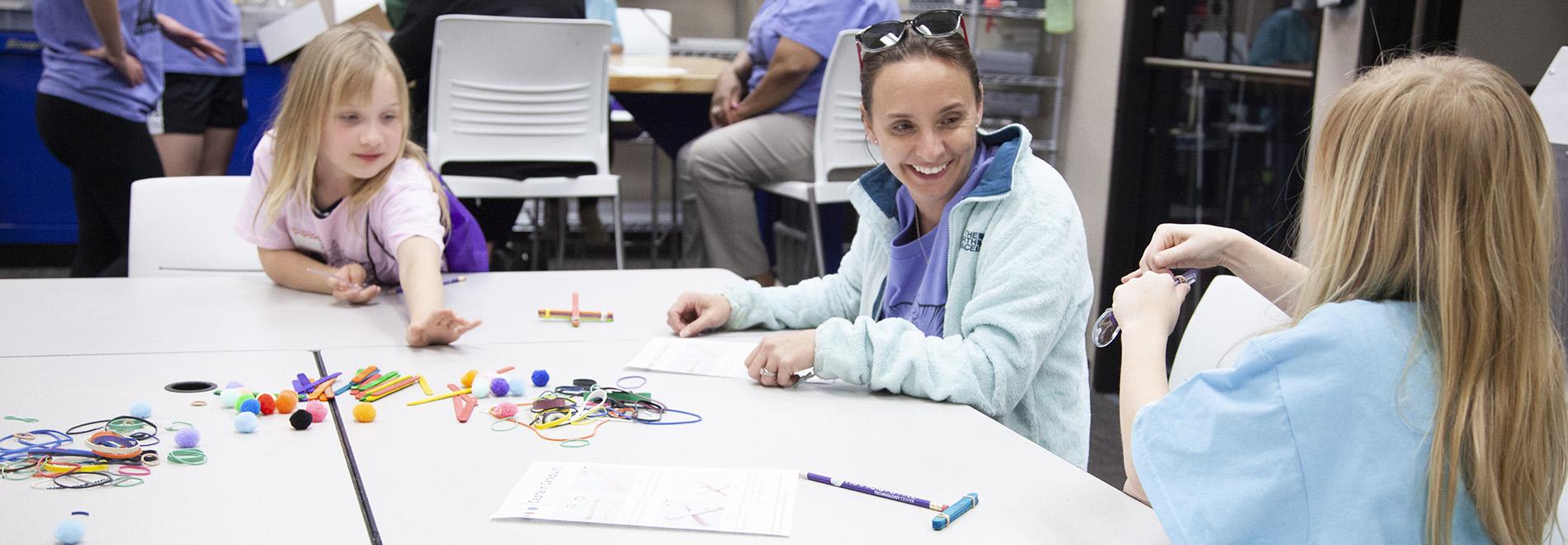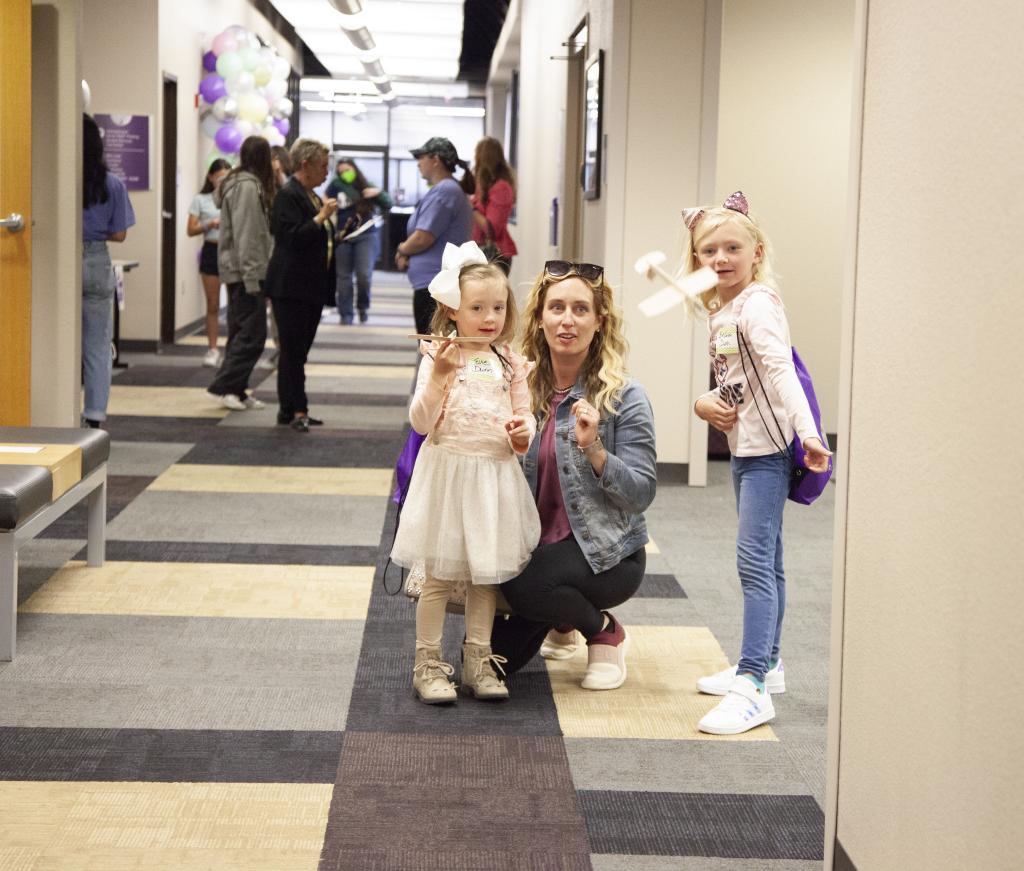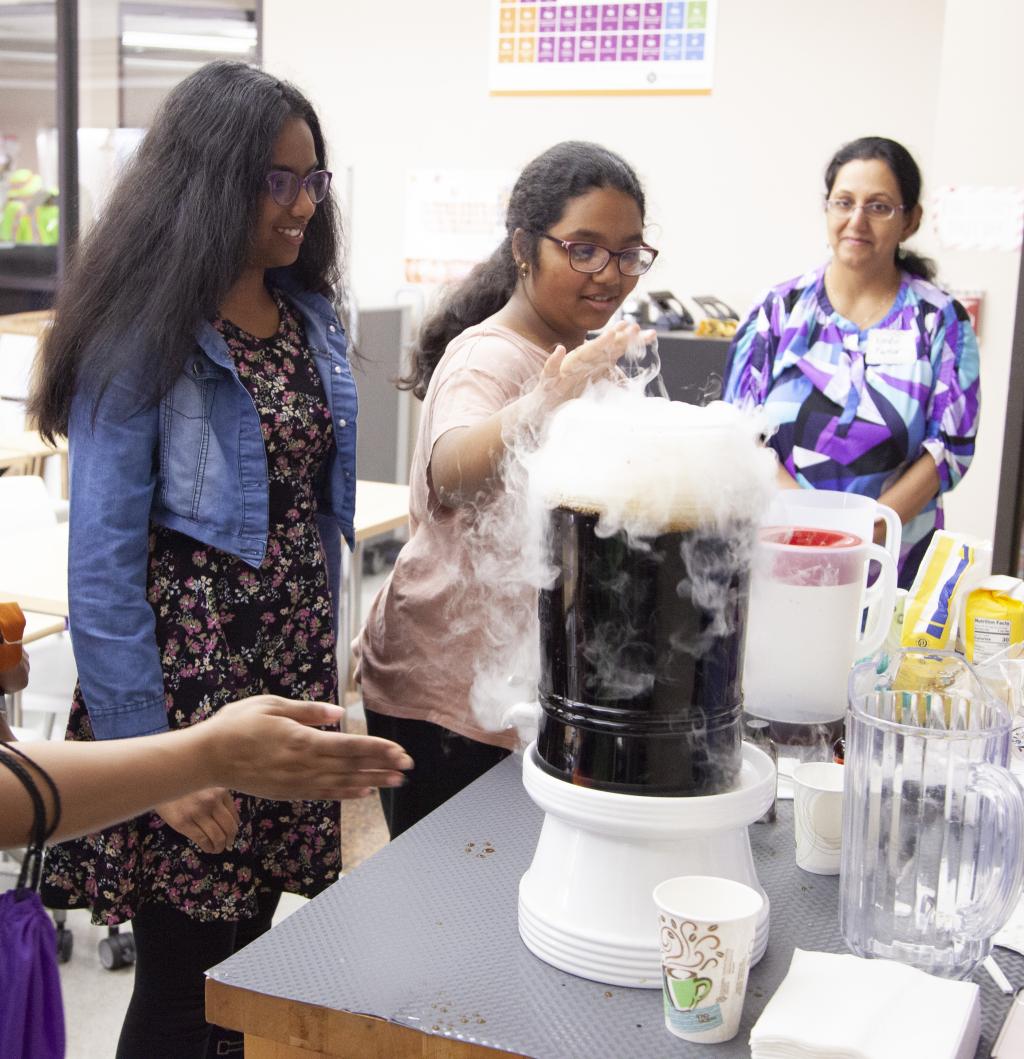Mother-Daughter STEM Night lets families explore, build interests together
The best way to spark girls’ interest in STEM fields is to show them the women who are already there.
And there's no better way to do that than conducting science experiments together.
Mothers, grandmothers, aunts, cousins, older sisters, and many forms of legal guardians joined their elementary-aged explorers for the Spring 2022 Mother-Daughter STEM Night. Francis Tuttle Technology Center’s Portland campus hosted them for a night of fun discovery.
“It was so much fun watching both kids and adults ask questions and build together,” Emma Wright, Non-Traditional Career Advisor at Francis Tuttle, said. “The teamwork in every group was incredible to watch. My favorite part was watching our Francis Tuttle students transform into compassionate and engaging educators. Our students astounded me with their capacity to talk about simple and complex STEM topics with elementary students, and they managed to keep each group lively and engaged.”
Francis Tuttle staff and student volunteers led participants through several science experiments and technology fun. They created mini-catapults, designed a Wonder Woman keychain they could take home, made putty, used dry ice to create root beer, and experienced just about every discipline of science there is in the process.
According to Pew Research, representation for women in STEM fields varies. While they are the majority in healthcare, they make up a quarter of the workforce in computer occupations, which is currently a high-growth industry.
They make up about 15 percent of workers in the engineering sector, which has only marginally increased since the 90s. Those working in atmospheric and space sciences rose sharply between 2016 and 2019.
“We hope events like this encourage young women to pursue STEM careers,” Wright said. “It provides a space for young girls to see women who look like them and are interested in the same things as them. Having access to mentors and educators similar to you provides a sense of companionship and community that is essential to success. And when parents create that space for their children to foster curiosity and provide support along the way, there’s nothing their kids can’t do.”
Wright’s role at Francis Tuttle is to focus on students who want to enter a non-traditional career. That means the career they'd like to pursue is in an industry in which their gender is less than 25 percent of the current workforce.


